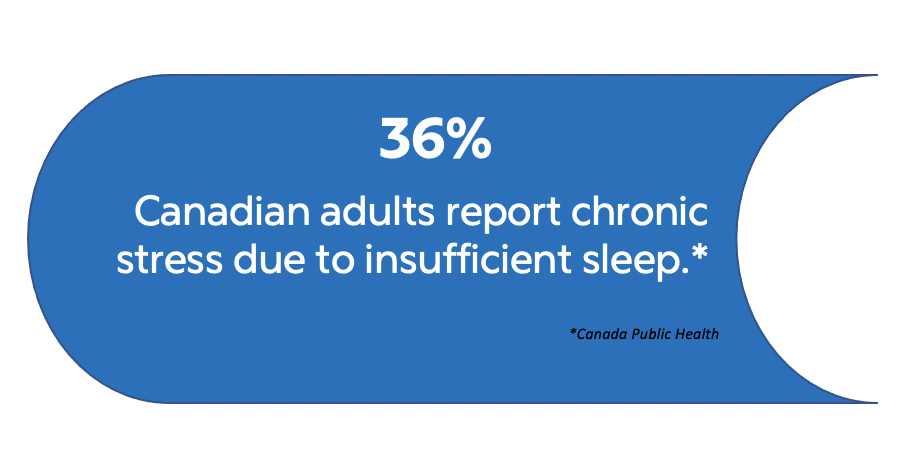Reimagining Sleep Culture: Business Leaders Weigh In On Why Rest Leads to Success

The pandemic has had an impact on our sleep health.
Thanks to a pervasive “rise-and-grind” culture, the stress of navigating everything from parenthood to a pandemic, and the strain of running their own operations, business leaders across the globe are losing out on sleep.
The good news: business leaders in the sleep and wellness industries are making slumber easier to get. And while running a company doesn’t sound conducive to relaxation, these well rested—and successful professionals are prioritizing wellness and sleep health, using their personal quests for better rest to help not just themselves but the rest of us, too.
With World Sleep Day coming up on March 18, PayPal tapped into our global community of merchants to better understand the importance of sleep and get advice for entrepreneurs and others dreaming of better rest.
A Sleep-Deprived Society
In the age we live in, sleep is too often deprioritized—to the detriment of the health and wellbeing of many. The pandemic has exacerbated the issue, resulting in a chronic lack of sleep that knows no geographical boundaries. About 36 per cent of the global population had experienced sleep problems during the COVID-19 pandemic as of mid-2021, according to one study.
Yet, the roots of today’s sleep-deprived society were firmly planted well before the pandemic, as the hustle and grind and “always on” work and social cultures became the norm. More than 40 per cent of business owners say they don’t get enough sleep at least four nights a week, according to a survey.
“We are busier today more than ever and it’s routinely difficult to get eight hours of sleep, so it’s critical to maximize the quality of sleep during the hours you do get,” said Dan McKinley, SVP of sales and customer experience at leading Canadian specialty sleep retailer Sleep Country.
Adair Finucane, an Ayurvedic wellness coach and burnout recovery specialist based in Rochester, New York, said being a business owner cranks up the pressure for maximum productivity.
“When you’re a business owner, clients, staff, colleagues, family, or some combination of these are relying on you,” he said. “This can create a lot of pressure, from without and within. Who doesn’t want to be seen as hardworking or dedicated?”

Photo courtesy Sleep Country.
Changing Sleep Culture
Reversing the sleep deprivation trend will require changing sleep culture, particularly for those who subscribe to the “sleep when you’re dead” mantra.
Mark Zhang, founder of sleep-mask maker Manta Sleep, admits that when he was younger he, too, thought a key to success was to sleep just five hours a night and work all day.
“It is absolutely idiotic,” he said. “It is so destructive to be pushing this narrative. It is misleading to [trick] them into thinking success is created by hustling, doing lots of work, and not resting.”
According to Canada’s public health department, one in two Canadian adults struggle with getting a good quality sleep. More than 36% of Canadian adults reported chronic stress due to insufficient sleep and about 12% who said they get inadequate sleep reported poor mental health.
“Good quality sleep can help prevent mental health issues and can even help the brain process emotions. But when we regularly experience poor sleep, we are also at greater risk of depression, anxiety disorders and other mental illnesses,” said Margaret Eaton, National CEO, Canadian Mental Health Association.
Kitty Shum, who founded Toronto-based company Loti Wellness, said increasing self-care is important to shifting the culture, too. “In this fast-paced world there are so many things that we need to do, that we don’t tend to nurture the things we want to do,” said “Personal wellness can take a back seat when external demands on your time and energy cause you to lose focus on what’s important physically, mentally and emotionally,” she said.
And for small business owners who are also juggling parenthood, the demands can quickly pile one. “There were definitely times when we were stretched at work while dealing with babies not sleeping,” shared Cassandra Cannon, co-founder of sleepwear retailer Lake Pajamas. “I remember feeling like I was in a fog and couldn’t think clearly at work because I was so tired,”

Balancing Wellness and Business
According to a 2022 Sleep Habits Study commissioned by Northstar Research Partners for Sleep Country Canada, 89% of Canadians say sleep is important for their mental wellbeing, while 85% believe that a good night sleep sets them up for success the next day.
“A great night’s sleep impacts 100% of your life,” Sleep Country’s McKinley said. “It impacts your health, your well-being and it affects all ages. You just can’t start early enough on a good sleep routine and good sleeping habits.”
This World Sleep Day, Sleep Country is donating a portion of proceeds from all sales on March 18 (up to $100,000) to the Canadian Mental Health Association.
“We know from our research that a great night’s sleep is critical to mental health and the mental health component is often overlooked,” McKinley said. “A good sleep affects concentration, energy levels, absolutely everything. We know that the levels of stress have been much more evident and paramount the last two years of the pandemic. That’s why we are so passionate about supporting mental health and raising awareness around just how important getting a good quality sleep can be.”
For business owners, finding time for wellness—including adequate sleep—can be particularly challenging when on the hook for the fate of an operation that can feel like a 24/7 job.
Anne Lattimore, who also co-founded Lake Pajamas, recommended changing tasks when stress sets in, if possible. “I get re-energized when I accomplish even small tasks and mark something off the to-do list, and it often helps when I re-tackle more difficult things with fresh eyes.”
Mark from Manta Sleep suggests that business owners look for opportunities to simplify, automate, delegate, and hire to reduce the burdens that come with entrepreneurship – leaving more room for personal wellness. He also encourages companies to adopt a “pro-nap” culture.
Learning to Value the Health of Our Minds and Bodies
Researchers have estimated the economic impacts of lost sleep, and the numbers are staggering. According to one study, in Canada, lack of sleep leads to around 78,000 lost working days annually, due to workers falling ill and having to taking time off, or attempting to work even while sick.
This is untenable; a clear sign that we must take better care of ourselves and value our wellbeing, and that “working” at all moments does not equal productivity.
“Owning a business takes creativity, and creativity does not spout indefinitely on command,” said Adair. “It needs to be stoked through downtime, recreation, enjoyment, and pleasure.” And yes, that includes getting a healthy amount of sleep.
For more resources for small business owners, including tips and advice drawn from the global network of small business owners that PayPal works with, visit our Business Resource Center.